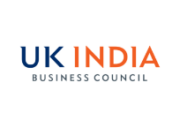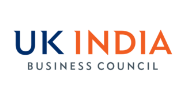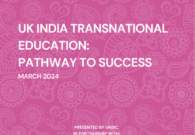2016: Taking the “I” out of BRIC
In the Economic Times on the 4th January, Mr Uday Kotak, the promoter of the leading Indian financial institution, Kotak Mahindra, called for India to distance itself from the other developing BRIC nations.
Compared to Brazil, Russia and China, India’s economic fortunes are very positive. During the past year, India edged past China to become the world’s fastest-growing major economy and it will continue to benefit from the downward momentum of commodity prices.
Mr Kotak is right when he focuses on the risk premium demanded by both FII and FDI investors and questions the validity of India suffering capital flight by being associated with much weaker economies. He rightly argues that India should stress the RBI’s focus on inflation, the accelerating momentum of “Ease of Doing Business”, and the impact of “Competitive Federalism”.
Moreover, he cites the changing domestic macroeconomic fundamentals, which he claims is encouraging domestic financial savings and could help Indian stocks withstand a pull-out by foreign funds.
India’s efforts in “Ease of Doing Business” is appreciated…
As regular readers will know, the recent UK India Business Council report, ‘Doing Business in India: The UK Perspective’, collated findings from a survey of our members and from discussions with our sector policy groups. A clear majority believe it’s already become easier to do business in India since Prime Minister Modi came to power and, if efforts are sustained, India will make significant improvements.
Indeed, Prime Minister Modi’s recent successful visit to the UK has generated further positivity and interest in the business opportunities created by the resurgent Indian economy. Mr Modi set the scene three days before stepping off his Air India flight at Heathrow, by easing of FDI norms in 15 major sectors, including mining, defence, construction, real estate, retail, civil aviation and broadcasting.
The UK India Business Council takes comfort from two events announced on 29th December 2015. First, Finance Minister Arun Jaitley chaired the first meeting of the governing council of the National Investment and Infrastructure Front (NIIF) on 29th December. Second, on the same day it was announced that the charismatic Secretary of the Department of Industrial Policy and Promotion, Mr Amitabh Kant, will assume the additional responsibility of CEO of the National Institute for Transforming India Aayog (NITI Aayog). Both events underscore the seriousness with which the Prime Minister intends to maintain positive developmental momentum.
..yet there is still much to be done
Nonetheless, the Indian Government would be the first to admit that while much has been achieved more remains to be done. Both domestic Indian and foreign corporates are deeply frustrated that, yet again, the key Goods and Services Tax (GST) Bill failed to clear the Upper House in the recent Winter Session. The Government has now changed the roll-out deadline from April 1, 2016 to June 1, 2016. While missing the April deadline is a disappointment, this time should be used to work on the technology framework, structure and administrative details of the GST.
There is much at stake here. GST will simplify the indirect tax regime across India, replacing the current myriad of taxes with a single tax. Indeed, a study by the National Council of Applied Economic Research estimated that the introduction of GST would boost GDP growth by 0.9-1.7%. Moreover, the UK India Business Council believes that the success of GST will depend upon its effective implementation and that the NDA Government should not compromise on the two key issues of a low rate and keeping as few exemptions as possible.
Other operating issues remain outstanding, or at least unresolved. On 20th December, it was reported that the CEO of Cairn Energy had written directly to Mr Modi seeking a resolution to their long running $1.6 billion tax dispute which has materially negatively impacted both the company and its investors.
There remains much to look forward to in India in 2016 and beyond.
The UK India Business Council remains confident that UK India economic relations are poised for significant growth. India is undergoing a period of significant and rapid change. Indeed, perhaps in many ways more radical than that which was ushered in by the reforms of 1991. India’s domestic growth is accelerating and the needs of its industry and of its consumers are changing. Demand is for more sophisticated technologies, products and processes, underpinned by a rapid up-gradation of infrastructure.
The UK, with its strength in IP and Technology development across key sectors, is ideally positioned to partner with India to the benefit of both our countries.
Indeed, the UK and India already enjoy strong economic relations on which to build this growth. The UK is the largest G20 FDI investor into India and India is the 3rd largest global FDI investor into the UK. Some 535 UK businesses operate in India employing some 700,000 people with an aggregate annual wage bill of some $7bn. At the same time, some 700 Indian business operate in the UK with total employment of 110,000.
However, it is the nature of this bilateral engagement which is changing. The mix of UK companies incorporating in India is becoming more diverse, with IT and ITES, Learning, Retail, and Healthcare sectors joining long established sectors such as advanced manufacturing and financial and professional services. This spread of sectors is mirrored amongst the Indian companies locating in the UK, with some companies buying established brands or accessing UK technology in food processing and digital media or accessing distribution channels in pharma and lifestyle.
UK India Business Council in 2016
The UK India Business Council will continue to be “in the thick of it” in 2016; delivering support to our members and to the UK Government trade policy objectives, and providing a growing range of highly regarded services to MSBs and SMEs.
UK India Business Council service offering: we can now credibly claim to offer corporates wishing to engage in trade with both the UK and India a powerful forum in which to air their views on opportunities and market access issues in specific sectors, as well as an end –to-end service offering in the UK and India. We now offer a complete range of client-facing services. We have seen demand grow five-fold in the last year, and we will further improve and expand this offering in 2016.
At the same time we have developed a powerful outreach capability, raising awareness amongst an ever greater number within the UK corporate sector. Our new website, www.ukibc.com, is central to this capability and is a resource for businesses looking for intelligence on the business opportunities opening up as the Indian economy grows and changes, and for guidance on how to access those opportunities, such as webinars, case studies, and videos. In addition to this free content, we have ‘member only’ content that anyone at our member companies can access by registering with their work email address. Through our member only section our members will get instant and automatic access to summaries of our roundtable discussions, notes from our Sector Policy Groups, and access to all of our reports and market intelligence.
We, of course, will also continue to support businesses looking for office space and facilities in our UK India Business Centres in Gurgaon, Bangalore and Mumbai. Each of which support companies making a great impact in trade flows between India and the UK.
UK India Business Council facilitating bilateral dialogue: We are working ever closer with India’s business friendly states, and are participating in Bengal Global Business Summit 2016 and Partnership Summit in Andhra Pradesh in January, and Invest Karnataka in February. These summits provide platforms for investors and governments to engage with each other and explore opportunities, but they are also illustrative of the increasing competition among India’s states. This intensification is itself interesting as it demonstrates the growing role and importance of states in delivering progressive reforms and ultimately growth.
Finally, I should note that the UK India CEO Forum is a new and important initiative to strengthen UK-India business relations. The meeting of the Forum was the key business interaction during Prime Minister Modi’s visit, bringing 40 UK and Indian business leaders to meet the two PMs at No 10. The Forum will work to complement and enhance existing business to business and government to government initiatives. The CEO Forum members focused on the following 6 overarching themes:
- Smart Cities and the Digital Economy;
- Healthcare and Hygiene;
- Education;
- Manufacturing, Defence and Security;
- Financial and Professional Services; and,
- Bilateral Ease of Doing Business.
Non-Forum members will be involved in the work streams so as to maximize the identification of opportunities. The UK India Business Council will be Secretariat to the UK Co-Chair, Sir Gerry Grimstone, and to the UK members.
We look forward to taking our programme forward with you into 2016 and wish you all a very prosperous

 By Richard Heald
By Richard Heald 





